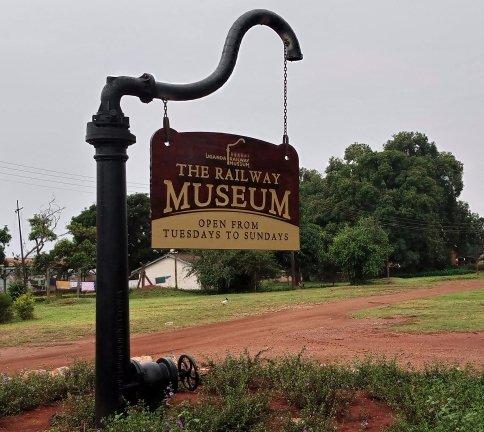With European Union support, first railway museum in Uganda opens

Located along the Jinja-Iganga Highway at the Railway Station in Jinja City, the museum will diversify the range of tourist attractions in Uganda, both for local and foreign visitors. Part of the museum has been designed with young people in mind to support their learning and appreciation of Uganda’s history. The Uganda Railway Museum will offer a varied programme that includes heritage theme nights, exploring a locomotive and coach, film recollections/stories, guided tours and access to a cafeteria.
Speaking on behalf of H.E. Attilio Pacifici, the Head of the European Union Delegation to the Republic of Uganda, Ms. Caroline Adriaensen, the Head of Cooperation, noted that the museum presents a great opportunity to recognise and appreciate the history of the railways in Uganda, their role in the lives of Ugandans who lived and worked along them, and their place in the country’s political and economic development. The European Union is delighted to support the revival of this crucial infrastructure and an important piece of our collective memory in Uganda.
Uganda’s railways played a fundamental role in the economic, colonial and post-colonial development of the country in terms of bringing communities together, allowing access to education and other facilities, and cementing national consciousness. The introduction of the railways in Uganda followed the August 1895 Bill in the British Parliament, authorising the construction of a railway from Mombasa to the shores of Lake Victoria. This marked the beginning of the Uganda Railway, which eventually expanded all the way to Pakwach in the north and Kasese in the west.
For many years, however, Uganda’s railways have been unused or underused, with historical artefacts (such as equipment, engines and carriages) and buildings (such as stations and workers’ cottages) falling into disrepair. There are ongoing government efforts to revamp the railway transport with the rehabilitation of the northern line and the construction of the Standard Gauge Railway. The establishment of the railway museum thus complements the government of Uganda’s efforts to highlight the importance of railway transport by reinvigorating its interest among Ugandans.
The establishment of the Uganda Railways Museum is premised on CCFU’s previous works on the history of the railway in Uganda. A book titled “Our Railways, Our History” was produced last year to recognise and celebrate the story of our railway lines; explore their role in the lives of Ugandans who lived and worked along them, and their place in the country’s economic and political development. The book is available at 90,000shs at selected bookshops and CCFU offices.
CCFU’s Executive Director, Ms. Barbra Babweteera Mutambi, noted that the establishment of the Museum demonstrates the Foundation’s commitment to safeguarding historical buildings, sites and monuments: "We have always advocated for the safeguarding of historic buildings, sites and monuments but the establishment of the Museum gives us a chance to demonstrate to the general public how to preserve a historic building sustainably,” Ms. Babweteera said.
Public visits
The Museum will open to the public starting Thursday, March 17 and will be free to the general public until Monday, March 21st. Thereafter, the Museum will always be open to the general public from Tuesdays to Sundays, 11:00am – 6:00pm at a fee.





